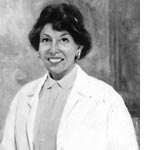 |
 |
|
 |
 |
 |
 |
 |
|
 |
 |
 |
 |

The Ruth Sager Lecture in Genetics
8/21/09 - 8:00 PM - Lillie Auditorium
"The Circuits That Let Us See"
Joshua Sanes, Harvard University
Introduced by Dr. Chi-Bin Chien

Lecture Abstract:
Complicated and specific patterns of connections among nerve cells underlie our abilities to perceive, think, and move. Neuroscientists have been intrigued for over a century by the prospects of mapping these circuits and understanding how they form during development. Recently powerful tools have become available for mapping circuits in the mammalian nervous system and for finding the lock-and-key recognition molecules that account for specific connectivity. A promising system for applying these new methods is the retina, in which several dozen neural cell types sense and process visual information and send to the brain. Although retinal circuits are complex, they are accessible and stereotyped enough that one can envision understanding how they form and how their structure underlies their function. This lecture will discuss new strategies for achieving these goals, and some of the new insights they are yielding.
Joshua R. Sanes is the Director of the Center for Brain Science and a Professor of Molecular and Cellular Biology at Harvard University. He received a B.A. in Biochemistry and Psychology from Yale University in 1970 and a Ph.D. in Neurobiology from Harvard Medical School in 1976. Following postdoctoral fellowships at Harvard Medical School and at University of California, San Francisco, he served on the faculty of the Washington University School of Medicine in St. Louis until returning to Harvard University in 2004. Dr. Sanes was a Visiting Professor of College de France in 2004 and a Fellow at Trinity College of the University of Cambridge in 2008. He is a member of the National Academy of Sciences and a fellow of the American Academy of Arts and Sciences and the American Association for the Advancement of Science. He currently serves on the editorial boards of Neuron, Cell, Developmental Biology, Journal of Cell Biology, and Neural Development, and on advisory boards for NINDS/NIH, the National Academy of Sciences, the Howard Hughes Medical Institute, the Max-Planck Institute for Neurobiology, the Stowers Institute, and the Klingenstein Fund. Dr. Sanes is an alumnus of the 1971 MBL Neurobiology course and has served on the MBL’s Alumni Advisory Board since 2001.
Dr. Chi-Bin Chien willl introduce Dr. Sanes. Dr. Chien is a professor at the University of Utah in the Department of Neurobiology and Anatomy where he has been on the faculty since 1998. He received his B.A. in Physics in 1981 from Johns Hopkins University, his M.S. in Physics in 1984 from the California Institute of Technology, and his Ph.D. in Physics in 1990 from the California Institute of Technology. Dr. Chien completed postdoctoral fellowships at the University of California and at the Max Planck Institute for Developmental Biology. He is currently on the Editorial Boards for Developmental Dynamics and Neural Development and is a reviewer for numerous journals. Dr. Chien is a member of the American Association for the Advancement of Science, the Society for Neuroscience, the Society for Developmental Biology, and the American Association of Anatomists. Dr. Chien is the co-director of MBL’s Zebrafish Neural Development and Genetics course. His laboratory uses the zebrafish to study the control of cell motility during in vivo development, particularly the growth of retinal axons from the eye to the tectum.
 About the Sager Lecture About the Sager Lecture
Dr. Ruth Sager was chief of cancer genetics at the Dana-Farber Cancer Institute and a professor at Harvard Medical School where she was an acknowledged expert on supressor genes and their relation to breast cancer. Dr. Sager was the author of more than 200 scientific papers on cancer genetics and the existence of DNA outside of cell nuclei, her first field of research, which she pursued through the study of algae. In 1988, Dr. Sager received the Gilbert Morgan Smith Medal in phycology. This medal is awarded every three years in recognition of excellence in published research on marine or freshwater algae. After switching her field of study to breast cancer in 1972, she received a Guggenheim Fellowship and studied the disease for a year at the Imperial Cancer Research Fund Laboratory in London, England. Dr. Sager graduated from the University of Chicago. She earned a master’s degree at Rutgers University and a doctorate at Columbia University. Dr. Sager was elected to the National Academy of Sciences in 1977.
She was a professor at Hunter College until 1975, when she joined Harvard Medical School and the Dana-Farber Cancer Institute. Her cancer research involved the identification of more than 40 possible tumor supressor genes with implications in the diagnosis and treatment of breast cancer.
She also proved “by persistent counterexample, where originality leads,” according to the University of Chicago Magazine article, published in 1994 when she was named alumna of the year.
Dr. Sager died of cancer in March, 1997, at the age of 79.
|
| |
  |
|
 |
 |
|